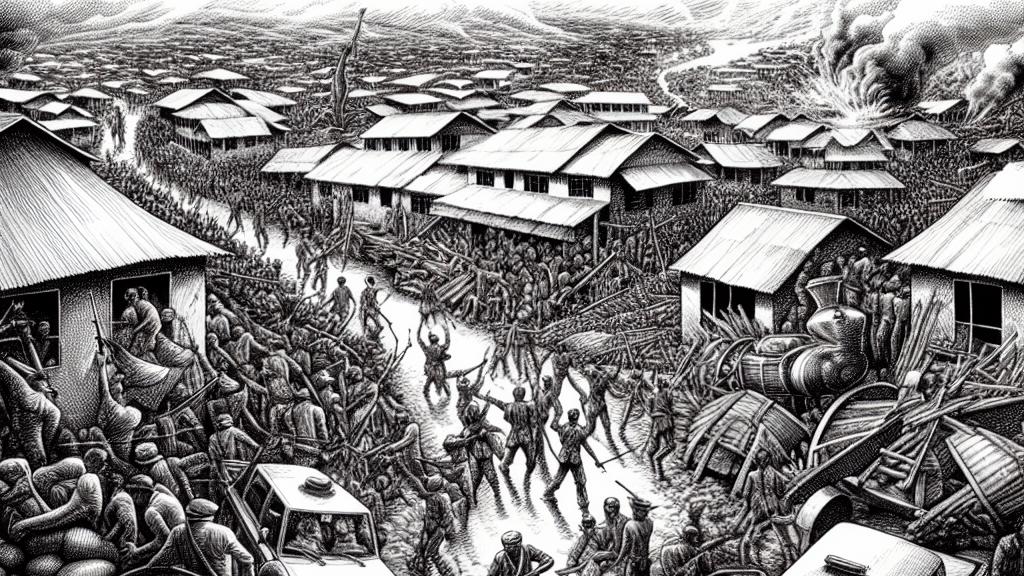Understanding the Conflict in DR Congo and the Capture of Minova
Overview
- M23 rebels have seized Minova, a crucial trading town in DR Congo, heightening the ongoing conflict.
- The capture has triggered a humanitarian crisis, displacing over 200,000 people and straining local health resources.
- Rwanda's alleged involvement complicates the situation, raising significant concerns about regional peace and stability.

The Capture of Minova
In a dramatic escalation of conflict, the M23 rebels, with support alleged from Rwanda, have taken control of Minova, a vital economic center in eastern Democratic Republic of Congo (DRC). This town, located a mere 40 kilometers from Goma, is not just another battleground; it is a key player in the region’s economy. Its fall represents not only a tactical victory for the rebels but also signals a potential reevaluation of power dynamics in the area. Just think about it: Minova is positioned in one of the richest mineral regions in the world, where gold and coltan are abundant. Instead of prosperity, these resources have become magnets for conflict, illustrating the paradox of abundance surrounded by violence.
Humanitarian Consequences
The fallout from this conflict is harrowing. Hospitals in Goma are overwhelmed, dealing with a relentless influx of injured civilians—reportedly treating over 300 patients in January alone! Picture this: a child, scared and alone, watches as their family flees under the chaos of gunfire, clutching only a small bag of belongings. These striking images remind us that beyond the statistics lie real lives filled with fear and despair. Humanitarian organizations are working tirelessly, yet the needs outstrip the available resources. The complex interplay of war means not just immediate danger, but long-term psychological impacts on those who survive. This situation calls for urgent attention, as communities face a dual threat of violence and displacement, desperately in need of stability and support.
Rwanda's Alleged Involvement
Rwanda's role in this ongoing conflict casts a long shadow over the situation. The Congolese government frequently claims that Rwanda backs the M23 rebels with military support, potentially fielding around 4,000 troops. Such accusations are not made lightly and speak to a history of distrust and territorial disputes that have simmered for years. Yet, Rwanda continues to deny these assertions, creating a morass of diplomatic tensions. To many observers, this consists of a game of chess, where each move is calculated and fraught with consequences. For peace to prevail, it is crucial to address these allegations head-on because ignoring them could allow the cycle of violence to continue unchallenged.
The Broader Impact of Ongoing Conflict
The turmoil in eastern DR Congo is emblematic of a wider struggle for control over resources and power. The M23's resurgence brings not only immediate fear and suffering but also threatens long-term stability in the region. As battles rage, countless individuals, families, and communities bear the brunt of this ongoing warfare. Consider the plight of those who find themselves uprooted, fleeing the only home they've ever known, their dreams replaced by visions of survival. The potential for economic development in the mineral-rich areas is overshadowed by the specter of armed conflict. This reality urgently underscores the necessity for effective international mediation and comprehensive strategies aimed at peace and rebuilding. After all, every conflict has its roots; addressing these underlying issues is key to breaking the cycle of violence and fostering genuine change for the people of the DRC.

Loading...